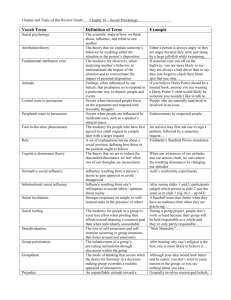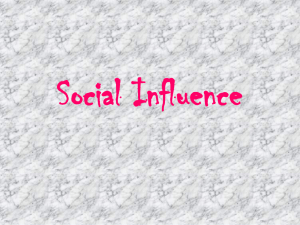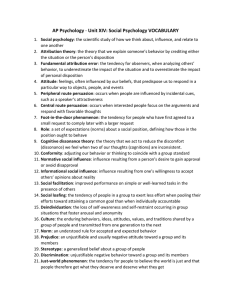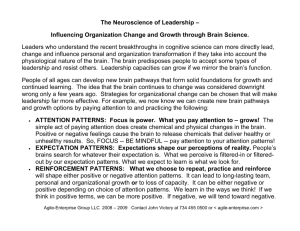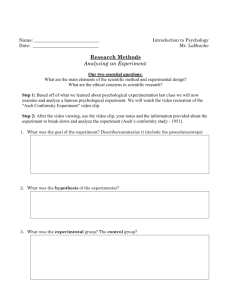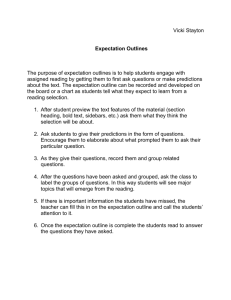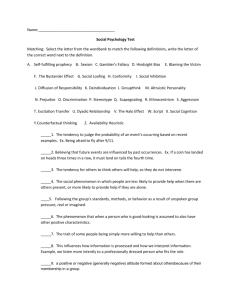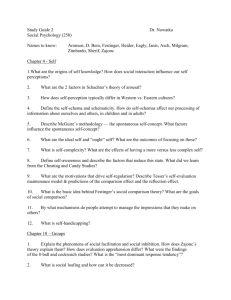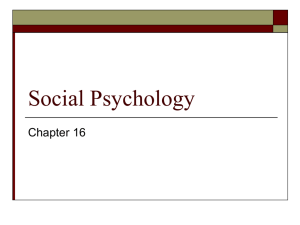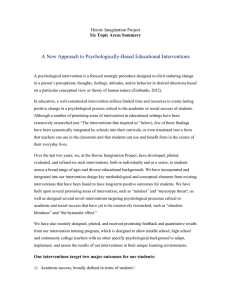TERMS AND DEFINITIONS Norm - A shared idea ore expectation
advertisement
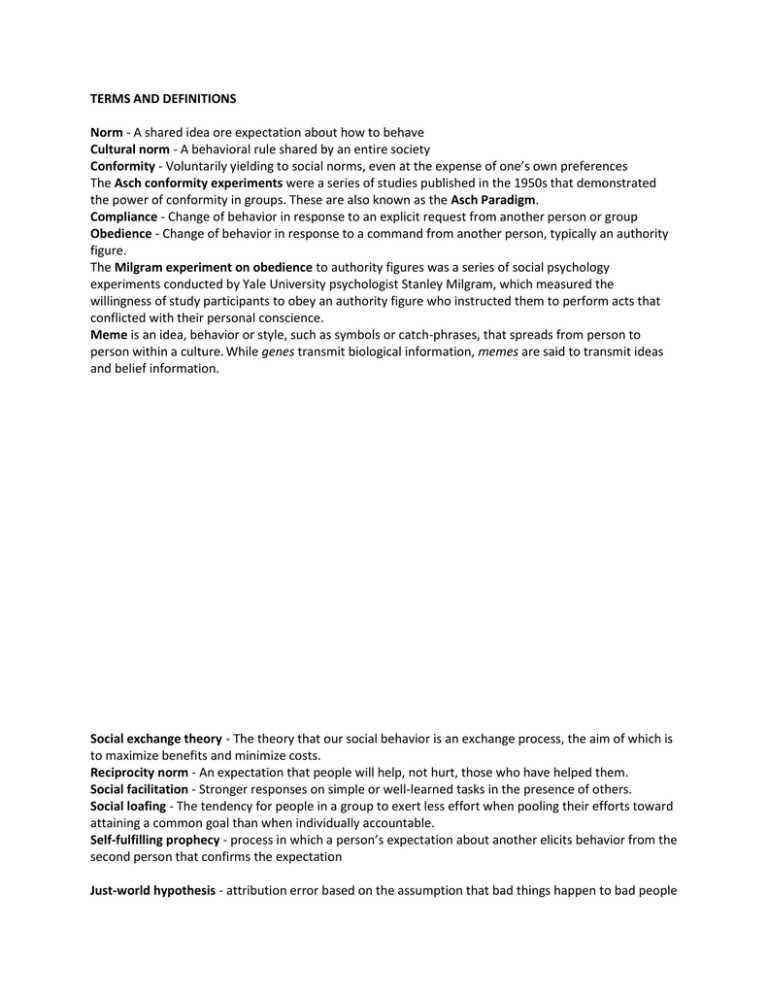
TERMS AND DEFINITIONS Norm - A shared idea ore expectation about how to behave Cultural norm - A behavioral rule shared by an entire society Conformity - Voluntarily yielding to social norms, even at the expense of one’s own preferences The Asch conformity experiments were a series of studies published in the 1950s that demonstrated the power of conformity in groups. These are also known as the Asch Paradigm. Compliance - Change of behavior in response to an explicit request from another person or group Obedience - Change of behavior in response to a command from another person, typically an authority figure. The Milgram experiment on obedience to authority figures was a series of social psychology experiments conducted by Yale University psychologist Stanley Milgram, which measured the willingness of study participants to obey an authority figure who instructed them to perform acts that conflicted with their personal conscience. Meme is an idea, behavior or style, such as symbols or catch-phrases, that spreads from person to person within a culture. While genes transmit biological information, memes are said to transmit ideas and belief information. Social exchange theory - The theory that our social behavior is an exchange process, the aim of which is to maximize benefits and minimize costs. Reciprocity norm - An expectation that people will help, not hurt, those who have helped them. Social facilitation - Stronger responses on simple or well-learned tasks in the presence of others. Social loafing - The tendency for people in a group to exert less effort when pooling their efforts toward attaining a common goal than when individually accountable. Self-fulfilling prophecy - process in which a person’s expectation about another elicits behavior from the second person that confirms the expectation Just-world hypothesis - attribution error based on the assumption that bad things happen to bad people and good things happen to good people Proximity - how close two people live to each other Exchange - concept that relationships are based on trading rewards among partners Equity - fairness of exchange achieved when each partner in the relationship receives the same proportion of outcomes to investments Intimacy - the quality of genuine closeness and trust achieved in communication with another person Self-monitoring - tendency for an individual to observe the situation for cues about how to react Frustration-aggression theory - theory that under certain circumstances people who are frustrated in their goals turn their anger away from the proper, powerful target toward another, less powerful target it is safer to attack Authoritarian personality - a personality pattern characterized by rigid conventionality, exaggerated respect for authority, and hostility toward those who defy society’s norms Cognitive dissonance - perceived inconsistency between two cognitions Social influence - process by which others individually or collectively affect one’s perceptions, attitudes, and actions. Culture - All the goods, both tangible and intangible, produced in a society Cultural truism - Belief that most members of a society accept as self-evidently true Deindividuation - Loss of personal sense of responsibility in a group Altruistic behavior - Helping behavior that is not linked to personal gain Bystander effect - Tendency for an individual’s helpfulness in an emergency to decrease as the number of bystanders increases. Groupthink - The mode of thinking that occurs when the desire for harmony in a decision-making group overrides a realistic appraisal of alternatives. Group Polarization - Shift in attitudes by members of a group toward more extreme positions than the ones held before group’s discussion Risky shift -Greater willingness to take risks in decision making in a group than as independent individuals Scapegoat theory - The theory that prejudice offers an outlet for anger by providing someone to blame. Frustration-aggression principle - The principle that frustration-the blocking of an attempt to achieve some goal- creates anger, which can generate aggression. Social trap - A situation in which the conflicting parties, by each rationally pursuing their self-interest, become caught in mutually destructive behavior. Mere exposure effect - The phenomenon that repeated exposure to novel stimuli increases liking of them. Passionate love - An aroused state of intense positive absorption in another, usually present at the beginning of a love relationship. Companionate love - The deep affectionate attachment we feel for those with whom our lives are intertwined. Equity - A condition in which people receive from a relationship in proportion to what they give to it. Self-disclosure Revealing intimate aspects of oneself to others. Altruism - Unselfish regard for the welfare of others. Bystander effect - The tendency for any given bystander to be less likely to give aid if other bystanders are present. Social-responsibility - An expectation that people will help those dependent upon them. Superordinate goals - Shared goals that override differences among people and require their cooperation. Hawthorne effect - Principle that subjects will alter their behavior because of researcher’s attention and not necessarily because of any specific experimentation
